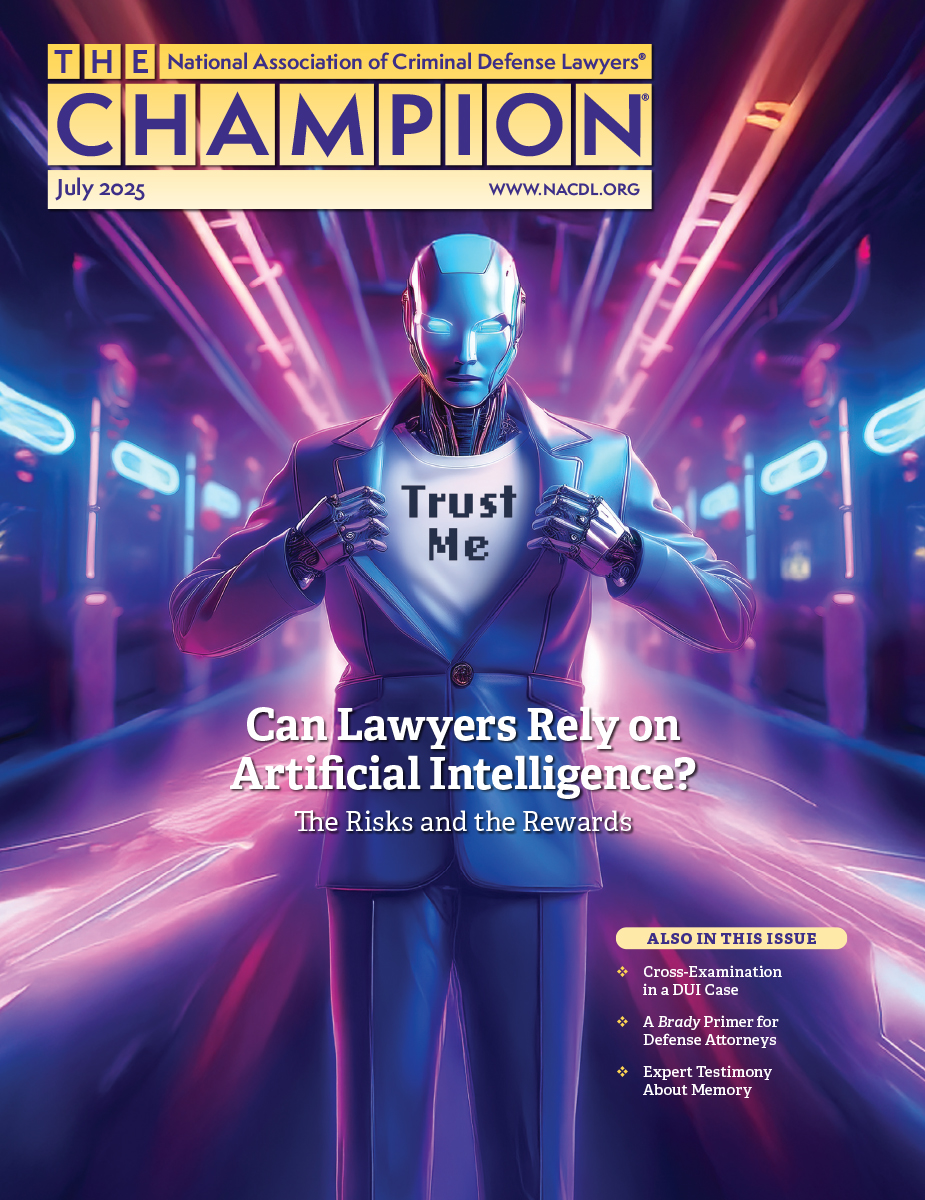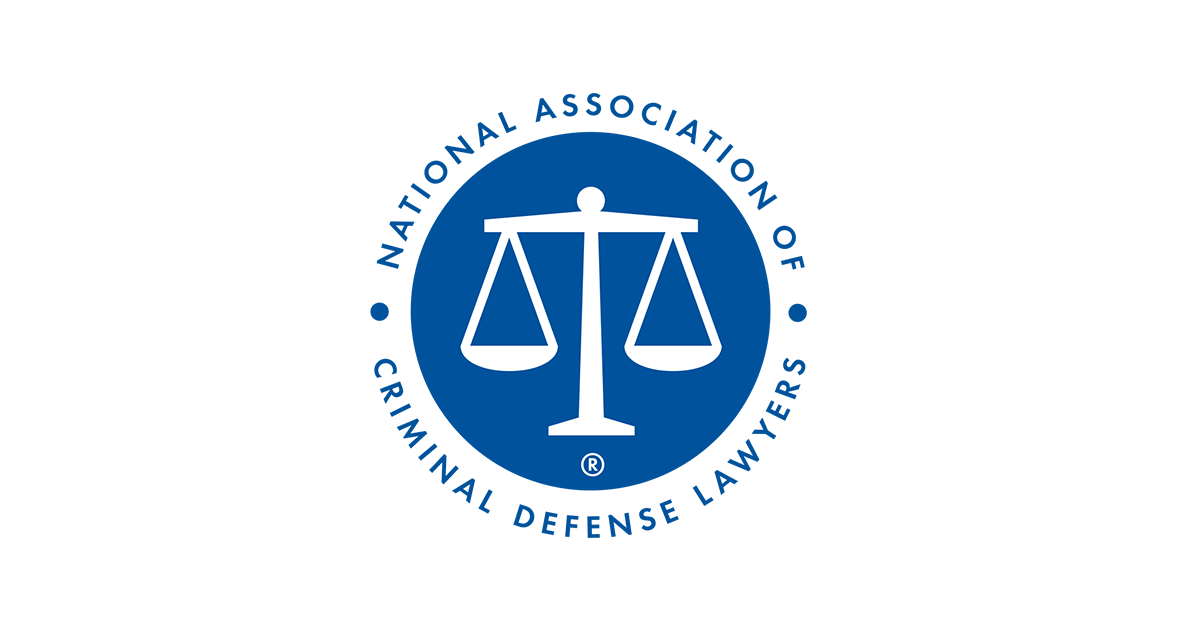
A former state and federal public defender, JaneAnne Murray has spent most of professional career as a criminal defense attorney. Currently, she splits her time between her private practice and her role as professor of practice at the University of Minnesota Law School, where she teaches criminal procedure and sentence advocacy. She has been co-chair of the NACDL Sentencing Committee for approximately four years, and was a member of the Steering Committee of Clemency Project 2014, for which she also drafted training materials and assisted volunteers in the drafting of their clemency applications. She was a member of the ABA taskforce to reform the federal economic fraud guideline, and she currently sits on the NACDL Trial Penalty Task Force, as well as the Attorney Advisory Group of NACDL’s State Clemency Project. She is a native of Ireland and obtained her law degree from University College Cork, and her masters degree in law from the University of Cambridge.
Featured Products
-

Challenging Digital Forensic Evidence & Software
This program arms defense attorneys with the legal strategies and technical understanding needed to challenge software evidence at every stage: expert qualifications, reliability under Rule 702, confrontation rights, discovery, due process, and more. You'll learn how to cross-examine government witnesses who rely on black-box technology they don’t truly understand—and how to force the court to take a closer look at what's really driving forensic conclusions. Learn how STRmix, TruleIO, ShotSpotter, and AI-generated sketches are marketed as scientifically validated, yet often evade scrutiny.
-

Objections That Stick! How to Exclude, Preserve, and Persuade
If you’re not objecting, you might be conceding—learn how to stop giving ground.
This program delivers practical strategies for making effective objections in criminal trials, especially drug cases. Learn how to challenge hearsay, 404(b) evidence, improper opinions, and prejudicial testimony. You’ll get objection language, methods for preserving error, and tactics for handling misconduct in closing arguments. With real-world examples and trial-tested tools, this program helps defense attorneys sharpen courtroom advocacy and protect the record for appeal.
-

Combating the "Rape Myth" Expert: Excluding & Diffusing Expert Testimony
When the prosecution uses a “rape myth” expert to sway the jury, do you know how to stop them—and turn their science against them?
This program, based on a real trial, gives defense attorneys a practical roadmap to challenge and exclude biased psychological testimony. You’ll get sample voir dire, motion language, Daubert strategies, and tips for exposing flawed methodology and narrowing testimony. Whether you're aiming to exclude the expert or limit their impact, this session equips you with the tools to protect your client and assert control in the courtroom.
-

Pattern Cross-Examination for Digital Forensic Experts
This guide provides ready-to-use cross-examination questions, categorized by artifact type and case theme—from cell phone towers to deleted texts to smart devices and cloud forensics. Whether you’re handling a case involving child exploitation, stalking, or online fraud, this book delivers practical patterns designed to highlight sloppy forensics, bias, tool limitations, and assumptions of intent or identity. Defense attorneys don’t need a computer science degree—they need strategy, control, and the right questions to challenge the illusion of digital certainty in court.
-

Using Chat GPT in Criminal Cases - Writing Better Prompts
Want a motion written in plain language but grounded in Tennessee case law? Need a summary of Fourth Amendment jurisprudence with primary and secondary citations? This is where you learn how to get that—on demand, and with far less editing. This training is designed specifically for attorneys—busy professionals who need fast, accurate, and case-relevant AI support. Whether you’re drafting motions, brainstorming legal strategy, summarizing complex case law, or preparing cross-examinations, the quality of your AI output comes down to one thing: how you ask for it.
-

Alcohol, Blackouts and Consent in Sex Cases
This comprehensive training program provides defense attorneys with a rigorous, science-backed approach to dismantling prosecutorial narratives, exposing unreliable testimony, and ensuring that juries are properly educated on the complexities of memory, intoxication, and consent. You'll explores critical mistakes and misconceptions encountered in these cases, including errors in memory reconstruction after an event, incorrect inferences, cognitive schemas, suggestibility, contamination and misinformation, mistakes of fact and more.
-

Overcoming the Presumption of Guilt and Defining Reasonable Doubt
Reasonable Doubt, what is it?
In order to win criminal cases, the defense practitioner must object to a reasonable doubt standard that lowers the burden of guilt. This program will discuss proven methods to argue and define reasonable doubt persuasively to a jury. You’ll learn how define reasonable doubt using metaphors and hypothetical scenarios that force juries to dispute the evidence, conflicts in the evidence, or even lack of evidence in your case.
-

The DIY of DNA: Exoneration Through DNA Evidence
This presentation might be the first time you’re truly able to truly grasp the fundamentals of DNA evidence. This critical presentation blends real-world storytelling with clear, practical instruction—making DNA evidence finally feel accessible, even to non-scientists—while inspiring attorneys to dig deeper, ask smarter questions, and approach forensic science with newfound confidence. You’ll learn how to identify and interpret electropherograms, understand autosomal vs. Y-STR testing, and recognize the limits of DNA evidence—particularly when it involves partial or mixed samples.








